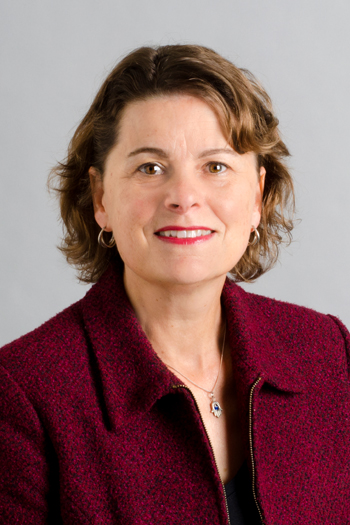Translational Research in Primary Care Fellowship
Our post-doctoral program focuses on implementation science: the study of strategies and interventions designed to work in an everyday setting.
As one of 20 in the nation, our program provides rigorous training leading to successful primary care research careers.
You will work closely with nationally recognized research leaders to identify and implement strategies to translate evidence into practice while reducing healthcare disparities.
Understanding Implementation Science
Unlike clinical randomized trials that determine the efficacy of an intervention under ideal conditions, implementation research assesses the effectiveness of an intervention under usual conditions, with an emphasis on pragmatic and successful applications.
Implementation science evaluates a wide variety of factors that influence practical adaptability and execution, including, but not limited to: appropriateness, cost, feasibility and overall sustainability.
Our research program focuses on how to translate evidence into practice to improve patient care and primary health care systems as well as inform clinical and policy decisions.
Objectives
Upon completion of this program, you will have attained the knowledge and skills necessary for a successful primary care research career. You will:
- design and conduct a mentored research project in collaboration with some of the nation’s most recognized health researchers
- improve research methods and design competency for pragmatic clinical trials, meta-analyses and community/practice engagement
- develop and enhance the skills required to submit a manuscript to a peer-review journal, as well as a pilot research grant proposal
- cultivate and sustain scholarly productivity and leadership skills
Approach and Training Tracks
Our fellows complete a two-year program with an optional third year. This postdoctoral program prepares MD and/or PhD scholars to conduct and disseminate primary care research related to four health services research-training tracks. They are:
Patient Activation
You will focus on all aspects of fostering and supporting patient self-management, with a particular emphasis on chronic complex patients and population groups with health disparities. This track typically involves Community Based Participatory Research (CBPR) methods where community members are involved in all stages of research – what research questions are relevant, what interventions are doable, and what outcomes are meaningful. Research is always done in real world settings (community and/or clinical) and often address the social determinants of health.
Geriatric Harm Reduction
You will focus on changing care team workflows and practice improvement science, patient/care giver engagement, as well as implementing evidence into practice. This track typically involves Practice Based Research Networks (PBRNs). Research topics can address an adaptive reserve of practice organizations, health information technology adoption and meaningful use, implementation science, and system-wide issues such as medication reconciliation and care management across settings.
Addiction Management
You will focus on all aspects of addiction recovery and medical management, including but not limited to behavioral health integration, screening and brief intervention and referral to treatment (SBIRT), co-occurring pain management, changing prescribing patterns across the system, prevention and early detection of risky behavior, initiation of recovery and self-management support across settings.
Hybrid track in primary care research
This track offers you the opportunity to focus on pre-established research interests, and can address a wide variety of topics related to primary care such as obesity, trauma informed care, patient safety, cultural competency, geriatric end-of-life choice and patient provider communication.
Guided Mentoring and Renowned Research Facilities
The UB Primary Care Research Institute is located on the vibrant Buffalo Niagara Medical Campus. You will have access to a variety of healthcare organizations and clinical facilities, including Roswell Park Comprehensive Cancer Center, six area hospitals, multiple healthcare clinics and the state-of-the-art Jacobs School of Medicine and Biomedical Sciences.
You will be assigned a research mentor who will provide overall guidance on research design, development and dissemination. With nationally recognized researchers from the Departments of Family Medicine, Medicine (Divisions of General Internal Medicine and Geriatrics and Palliative Medicine), Pediatrics (Division of General Pediatrics), Emergency Medicine, Psychiatry and Obstetrics and Gynecology, as well as the Schools of Pharmacy, Nursing, Public Health and Health Professions, Social Work and Management, you are encouraged to work with faculty to align research interests.
A Beautiful, Vibrant Living Community
Buffalo is known for its snow, but dig a little deeper and you’ll discover that our region enjoys four distinct seasons.
Our region is characterized by a neighborly way of life, an unpretentious nature and spirited loyalty among residents.
Get past the snowy stereotype and you’ll be immediately captivated by Buffalo’s beauty, heritage, temperate climate and welcoming environment.
Eligibility
Our training program is highly competitive, with a maximum of six postdoctoral fellows accepted for cycles of two or three years.
You must have a strong clinical or academic background, demonstrated research potential and the desire to translate evidence into healthcare practice.
Minorities and individuals from disadvantaged backgrounds are encouraged to apply.
All applicants must have:
- U.S. citizenship or permanent resident status; and
- Completed a PhD, MD, DO or comparable doctoral degree from an accredited institution. (MD/DO applicants can apply at any time post-doc. However, MD/DO applicants who have completed an accredited residency (ACGME or AOA) program and are board-eligible in their discipline will be preferred.)
Application Process
Applications are accepted on a rolling basis.
When applying, document your previous research experience, including prior publications, presentations and other relevant professional experiences. You must also provide a written personal statement that describes your commitment to a primary care research career, your long-term career goals, your current research interests, specifics about your training needs, evidence of your quality/potential and how the fellowship will facilitate meeting your goals.
Priority will be given to those who have prior research training, publications (especially first authorship), and an interest in translational primary care research and health disparities.
Contact
Project Director

UB Gateway Building Department of Family Medicine 77 Goodell Street, Suite 220D Buffalo, NY 14203
Phone: 716-816-7254; Fax: 716-845-6899
Email: lskahn@buffalo.edu
John S. Taylor
Executive Director of Development
Primary Care Research Institute